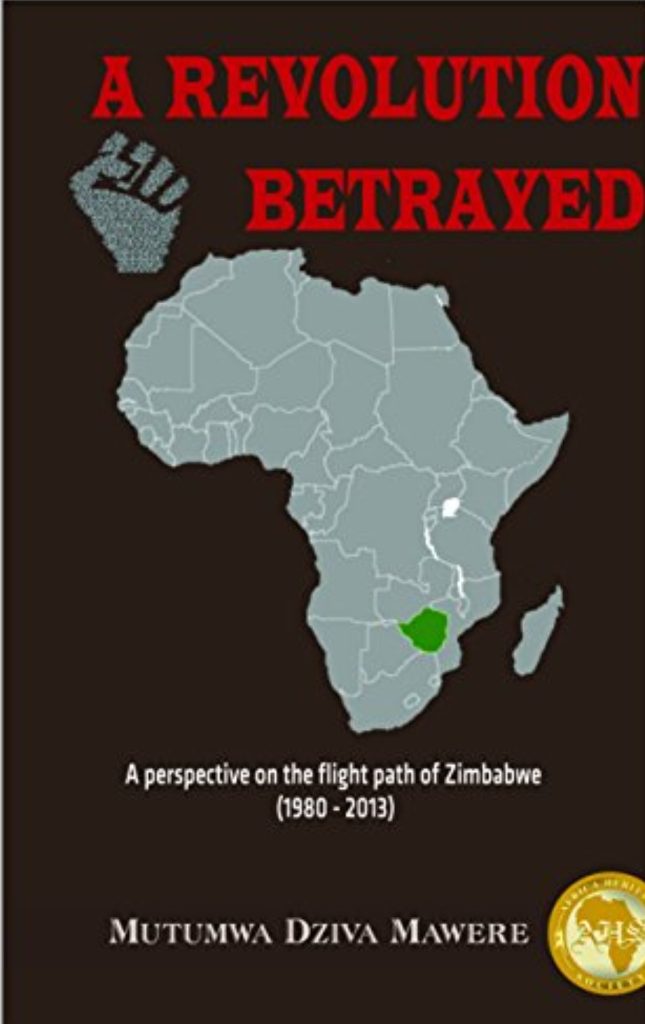Published
1 year agoon
History is a linear journey of life. It is the case that 1980 represents a year in which the consequences of universal suffrage are written the experiences of human beings who bridged this historical beginning and the continuing story of the people of Zimbabwe to answer to the question of whether the promise and reality of stories in between 1980 and 2023 speak to each and why.
Who is to blame, if any? I read this book authored by Mr. Mutumwa Mawere, a member of BOAF, and my conclusion after reading it was to include it in my companion as a book worth reading as part of a project powered by the Banking on Africa’s Future (BOAF) initiative to provoke 10,000 Africans to answer to the cardinal question whether the promise of independence was betrayed by its would-be shapers and protectors.
If you are interested in getting your copy, please follow Mr. Mawere on his linkedin page or simply use whatsapp number +27832692874.
Never use another person’s legs to take you to an address called UHURU.

HOW IT ALL STARTED IN 1980 – EUPHORIA AND HOPE

THE PREFACE OF THE BOOK:
This book is a collection of articles focusing on the review and assimilation of ideas over the past 33 years, dealing with the questions of economic empowerment and indigenization.
The 33-year old history of post-colonial Zimbabwe represents a major strategic experience that certainly will have important lessons for South Africa, Africa’s largest economy.
April 18, 1980 marked a turning point in the anti-colonial struggle and the successful negotiation of a political settlement facilitated by the United Kingdom made it easier for South West Africa (now the Republic of Namibia) and South Africa to change.
Whatever one’s attitude to toward the post-colonial experience, the lingering question about economic justice must be studied and correctly understood.
The land reform exercise and the current indigenization and economic empowerment program that are being driven by the State and its actors, have left an imprint that one cannot ignore. One cannot, therefore, locate the experiences of Zimbabwe on empowerment and indigenization outside the context of the colonial past.
The history of southern Africa, in particular, will never be the same, without taking into account the ideological and empirical case studies that Zimbabwe offers.
In investigating the question of why the majority of Zimbabweans find themselves at the bottom of the economic and opportunity ladder, there is an easy temptation to blame the colonial past, forgetting that a lot could have been achieved had proper investment been made on what matters in terms of building viable nation-states.
At the heart of the enterprise of nation-state building lies the question of the role of the State, if any, in leveling the economic playing field.
This compels us to examine the post-colonial period, a period that offered so much hope but has turned out to be nightmare for the majority of Zimbabweans who have to endure poverty, unemployment and income inequality of unprecedented proportions.
Understanding the nature of the indigenization and economic empowerment drive is critical in arming Africa and in learning the lessons of the post-colonial class contradictions in order to prepare for the real struggle – that of delivering on the promise of secure and free lives.
This book analyzes and critiques a number of transactions that have been concluded in the framework of indigenization and economic empowerment, as well as the regrettable course of historical development in Zimbabwe following the implementation of the land reform program.
The articles are preoccupied with the question of whether the intervention of the State in altering the member registers of companies constitutes a new, sustainable social model that advances the cause and spirit of the revolution.
What has been achieved since independence in positioning the black majority in the economic mainstream? Economic growth has been elusive in Zimbabwe and the policy reversals and shifts have exposed the bankruptcy of the architects of indigenization and economic empowerment thinkers and drivers in understanding the drivers and building blocks of an inclusive and cohesive society.
The book explores the relationship between indigenization and economic empowerment and the post-colonial State that has nothing tangible to show in terms of real and substantive empowerment after 33 years of independence.
It is argued in the book that the growth of inequality and attendant social antagonisms will not be cured by leaning backwards to listen to the ghosts of the colonial era.
The internal contradictions within the inclusive government, as well as within ZANU-PF, on this defining issue are examined in the book.
The lack of leadership on the key question of indigenization and economic empowerment after 33 years of independence is exposed. It appears to be the case that the State has been sufficiently fragmented to allow any Minister to define and shape the agenda as he or she pleases.







Warning: Undefined variable $user_ID in /home/iniafrica/public_html/wp-content/themes/zox-news/comments.php on line 49
You must be logged in to post a comment Login